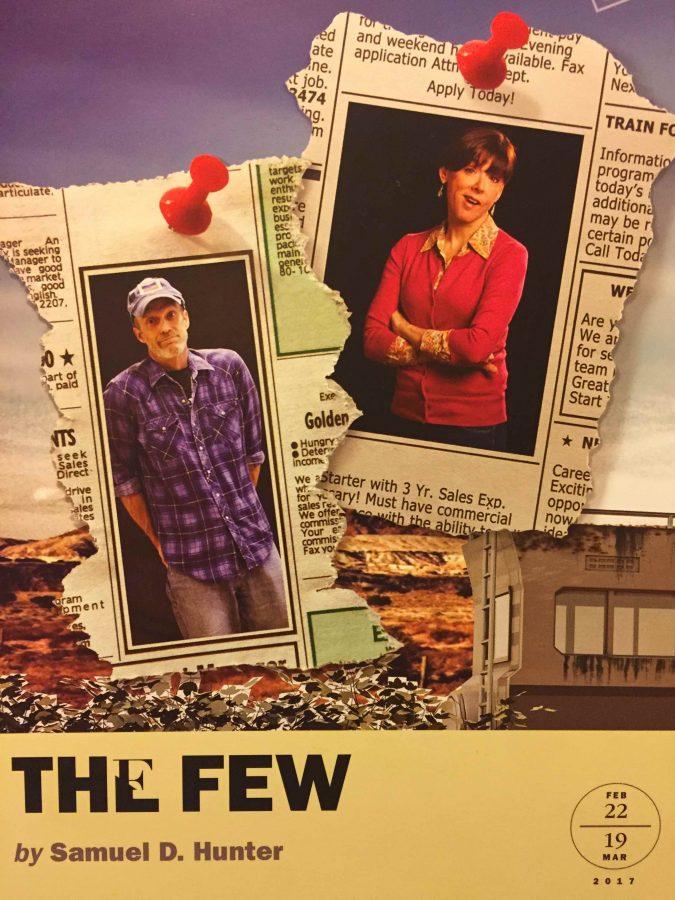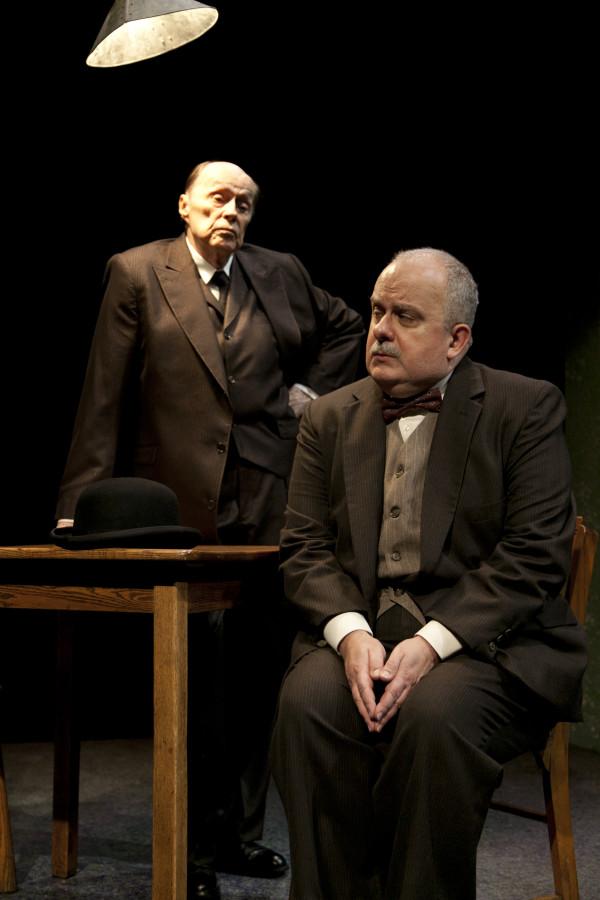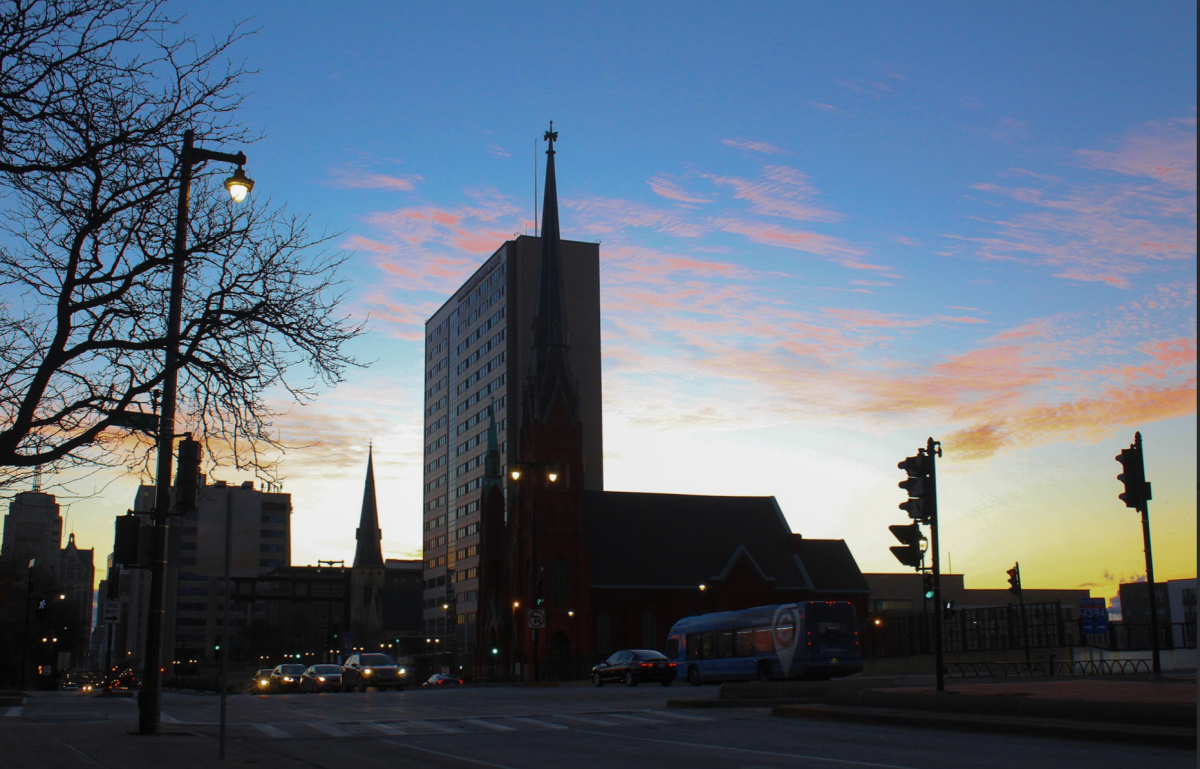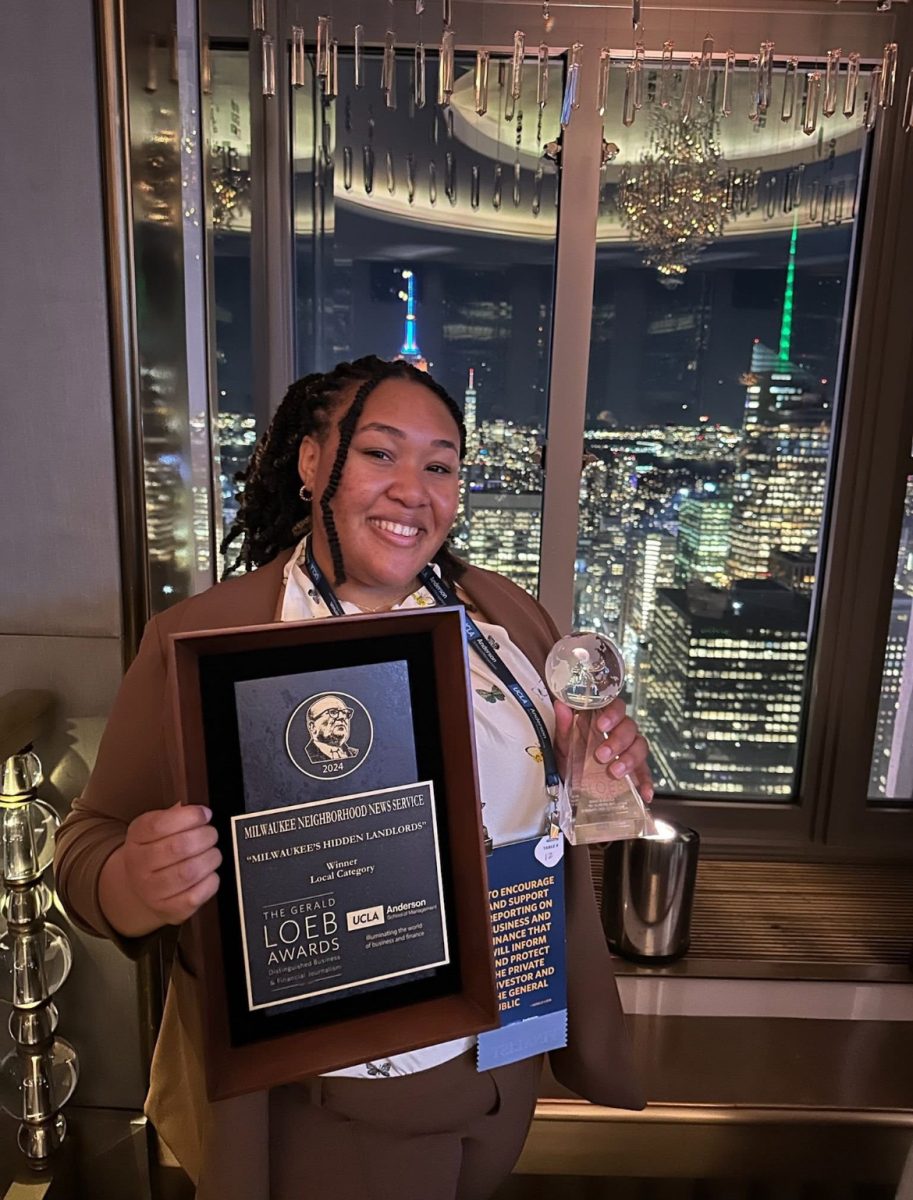Performances can transport an audience to a different time and place. Sometimes that place is a fantastic, magical land hidden in the depths of a wardrobe or down a rabbit hole, where a child’s wildest ideas come to life. But other times, that place is a run down trailer in the middle of nowhere Idaho, where three people are brought together by loneliness and an idea born from the hope of saving others in despair.
Samuel D. Hunter’s “The Few,” running at the Milwaukee Chamber Theatre through March 19, throws audiences straight into a mix of tension and pain. The three founders of a newspaper written for truckers, called “The Few” which was meant to be a beacon of light on long, cross-country treks, have gone their separate ways.
Jim, the driving force behind the paper, is dead. QZ, a founder of “The Few” and a friend of Jim’s, has worked for four years with the help of Jim’s nephew, Matthew, to make the paper profitable. Bryan, the third founder of the paper and QZ’s lover, left without a word days after Jim’s funeral, leaving QZ broken-hearted and alone.
Four years after the funeral and Bryan’s mysterious disappearance, the show opens with him returning to the trailer unannounced. QZ, played by Mary MacDonald Kerr, is visibly and rightly upset, and Bryan, played by James Ridge, is just looking for somewhere to stay. After a tense, but humorous spat between the ex-lovers, Bryan settles in for what would be a wild ride.
As I walked into the show, I wasn’t exactly optimistic. The cast was a measly three people and the plot was based around a trucker newspaper headquartered in northern Idaho. With such a small cast, I was expecting a lousy script reading. At the very best, I thought the show would be irrelevant with a chance of being slightly humorous.
But within moments of the lights going down and the cast taking the stage, I knew my premonitions were wrong.
The actors gave their all with a heartfelt performance. Mitch Bultman, who played Matthew, delivered hilariously awkward moments just when the audience needed a break from the darkness.
What seemed to be a completely unrelatable show turned out to express raw and deep emotions I, and most others, have been through. It didn’t feel like a play. When the actors were on stage, they weren’t normal people playing characters. They were just normal people. They weren’t Kerr, Ridge and Bultman – they were QZ, Bryan and Mattie.
Throughout the show, the audience was reminded that “The Few” had lost sight of its mission — rather than real stories of real people, it had become pages of personal ads for truckers seeking company on the road. Instead of meeting face to face with the men and women that the paper served, QZ had a bottomless supply of voicemails from drivers seeking a space in the paper. It was no longer about telling stories, it was about making money.
When Mattie found out his role-model uncle committed suicide and killed four others in the process, rather than falling asleep behind the wheel like everyone came to believe, the audience was in tears.
When Bryan brought in jugs of cheap wine, a bottle of whiskey and mixed up a nasty concoction, things got bitter and a bit violent between him and QZ. The audience felt QZ’s anger and Bryan’s loss of faith.
The theater was transformed into a world where things weren’t magical and fantastic, but they were real.
The set was very well done, down to the dust and bumper stickers decorating QZ’s desk. It felt like I was sitting in one of Mattie’s metal folding chairs, watching a real fight unfold before me instead of sitting among 100 other audience members at a show.
It was a small production in a small theater. Because of that, I had small expectations, but the performance of the cast and crew turned heads, drew out emotions most shows wouldn’t dare touch and delivered a powerful message that happy endings are not always the stuff of dreams.
Sometimes, happy endings are a simple voicemail reminding you that the things you do, no matter how impressive they seem, can change lives for the better — like the woman calling Bryan to let him know her misprinted personal ad led her to see potential for herself.
It wasn’t how he planned things, but that last message was a reminder that there is always hope. Sometimes it just doesn’t look the way we imagine it.







